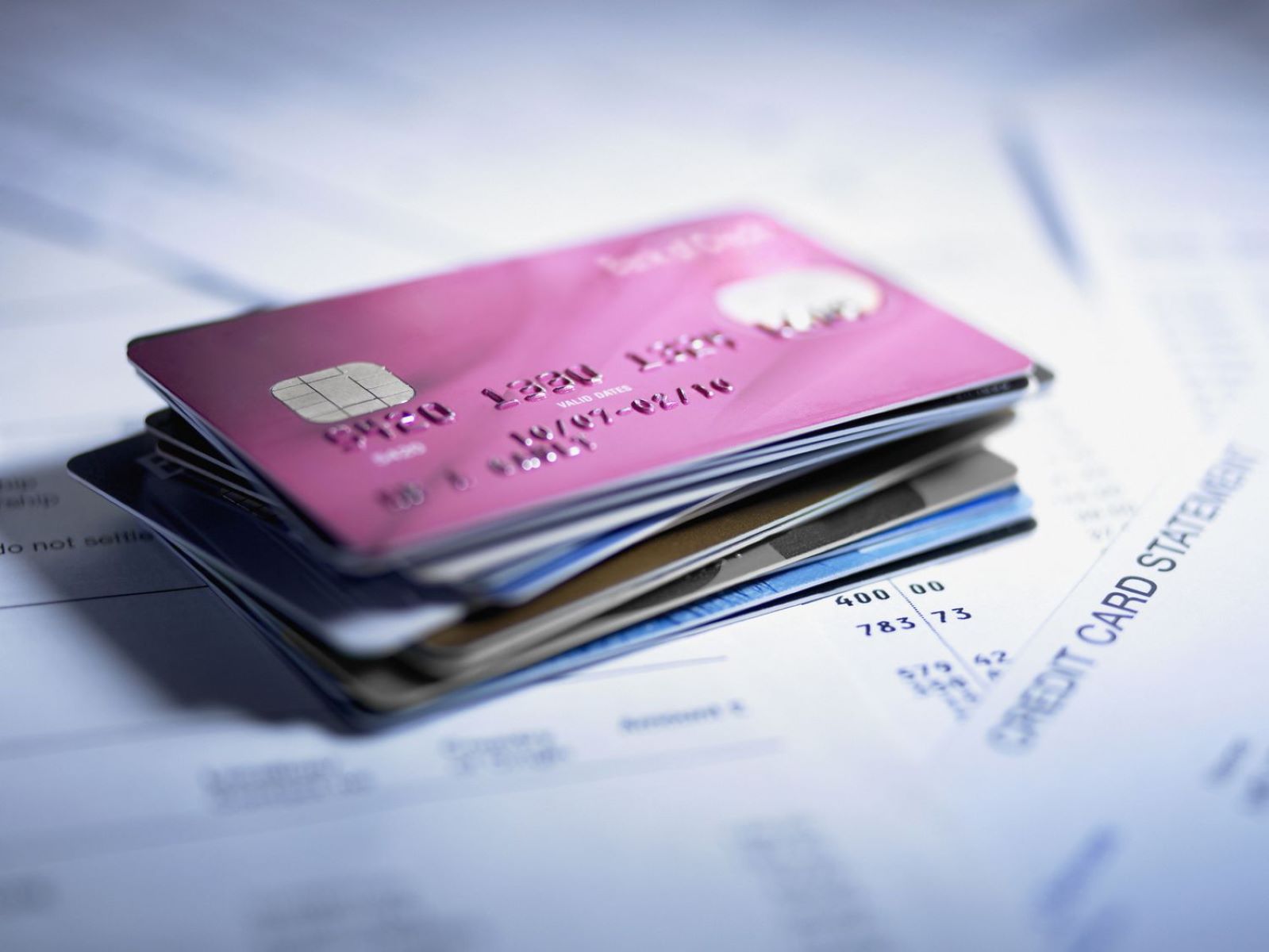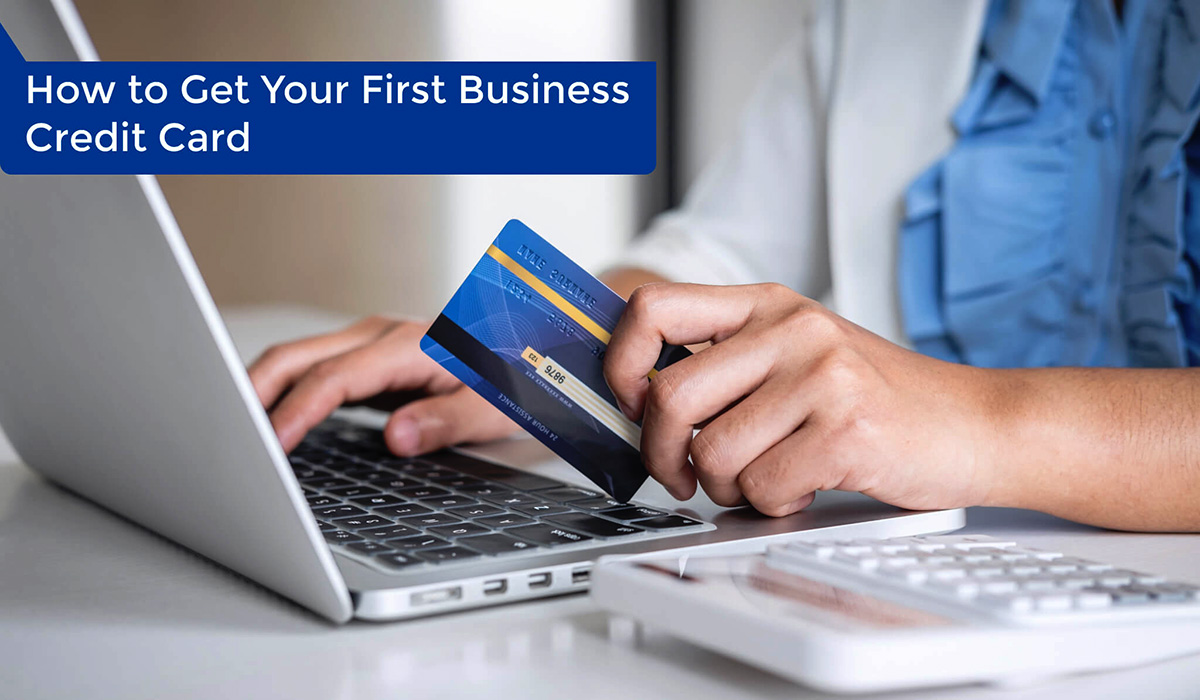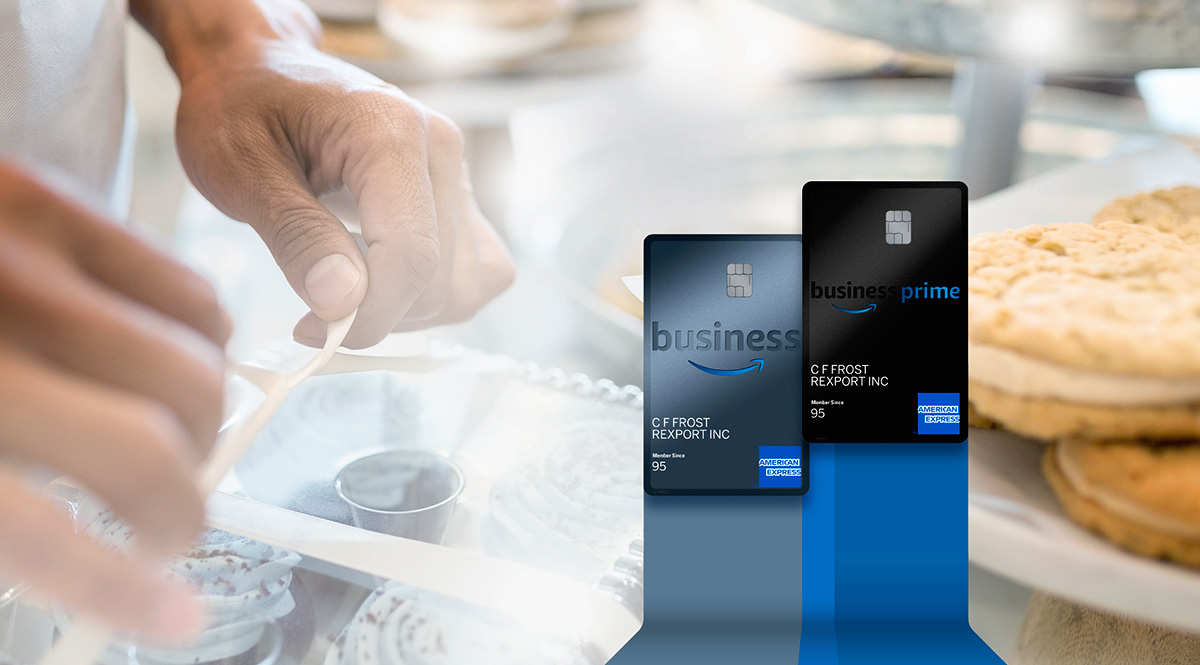Home>Finance>How To Get A Business Credit Card Without A Business


Finance
How To Get A Business Credit Card Without A Business
Modified: December 29, 2023
Learn how to get a business credit card without having an official business. Find out the financing options available to individuals interested in boosting their personal finances.
(Many of the links in this article redirect to a specific reviewed product. Your purchase of these products through affiliate links helps to generate commission for LiveWell, at no extra cost. Learn more)
Table of Contents
- Introduction
- Understanding Business Credit Cards
- Eligibility Criteria for Business Credit Cards
- Exploring Options for Getting a Business Credit Card without a Business
- Method 1: Sole Proprietorship
- Method 2: Independent Contractor
- Method 3: Using Your Social Security Number
- Method 4: Utilizing a Business Partner or Authorized User
- Method 5: Building Credit through Personal Accounts
- Tips for Applying and Managing a Business Credit Card without a Business
- Conclusion
Introduction
Business credit cards are a valuable tool for entrepreneurs and small business owners. They offer numerous benefits, including increased purchasing power, expense tracking, and rewards programs. However, what if you’re interested in getting a business credit card but don’t have an established business? Can you still qualify for one?
The answer is yes. While most business credit cards are designed for businesses with a formal structure, such as an LLC or corporation, there are still options available for individuals who don’t have a registered business. In this article, we will explore various methods and strategies to help you secure a business credit card, even if you don’t have a business.
Before we dive into the specific methods, let’s take a moment to understand the basics of business credit cards and why they can be beneficial to individuals without a formal business.
Understanding Business Credit Cards
Business credit cards, similar to personal credit cards, are financial tools that allow you to make purchases on credit. However, unlike personal credit cards, business credit cards are specifically designed to meet the needs of businesses and entrepreneurs. They offer higher credit limits, expense management systems, and specialized perks tailored for business spending.
Business credit cards can be used to manage everyday business expenses, separate personal and business finances, and build a credit history for your business. By using a business credit card wisely, you can establish a positive credit profile for your business, which may be useful when applying for loans or securing favorable terms with suppliers in the future.
Now that we have a basic understanding of business credit cards, let’s explore the eligibility criteria for obtaining one without having a formal business structure.
Understanding Business Credit Cards
Before delving into the methods of obtaining a business credit card without a formal business, it’s important to have a clear understanding of what these credit cards entail.
A business credit card operates similarly to a personal credit card, but with a focus on meeting the specific needs of businesses and entrepreneurs. They offer higher credit limits, specialized perks, and expense management systems tailored for business spending.
Here are some key features and benefits that make business credit cards unique:
- Increased purchasing power: Business credit cards typically have higher credit limits compared to personal credit cards. This allows you to make large purchases or cover business expenses without worrying about reaching your credit limit.
- Expense tracking: Business credit cards provide detailed statements that itemize your business purchases. This makes it easier to keep track of expenses, analyze spending patterns, and simplify the process of record-keeping for tax purposes.
- Rewards and perks: Many business credit cards offer rewards programs tailored to business needs. These can include cash back on business purchases, travel rewards, discounts on office supplies, and other perks that can help save money and enhance your business operations.
- Building business credit: Just like personal credit cards help establish and build your personal credit history, business credit cards can help establish a credit profile for your business. By using a business credit card responsibly, making timely payments, and maintaining a low credit utilization ratio, you can build a strong credit history for your business.
- Separating personal and business finances: Having a business credit card allows you to separate your personal and business expenses. This not only simplifies financial management but also helps maintain clear records for tax purposes and legal liability protection.
Overall, business credit cards are a valuable tool for managing business finances, providing financial flexibility, and earning rewards. Now, let’s explore the eligibility criteria for obtaining a business credit card without a formal business structure.
Eligibility Criteria for Business Credit Cards
While business credit cards are primarily designed for businesses with a formal structure, such as LLCs or corporations, there are still options available for individuals who don’t have a registered business. The eligibility criteria for obtaining a business credit card without a formal business may vary depending on the card issuer and specific requirements, but here are some general factors to consider:
- Personal credit history: Without a business credit history, lenders will typically evaluate your personal credit history to assess your creditworthiness. A strong personal credit score demonstrates your ability to manage credit responsibly and increases your chances of obtaining a business credit card.
- Income and employment: Card issuers will assess your income and employment status to determine your ability to repay the credit card debt. If you have a stable income source, it can positively impact your eligibility for a business credit card.
- Age and residency: You must meet the age and residency requirements set by the card issuer. Typically, you must be at least 18 years old and a legal resident to apply for a business credit card.
- Social Security Number (SSN) or Individual Taxpayer Identification Number (ITIN): Most credit card issuers require applicants to provide a Social Security Number (SSN) or an Individual Taxpayer Identification Number (ITIN) for identification and credit check purposes.
- Business revenue (if applicable): Some card issuers may consider your personal or side gig income as a factor in assessing your eligibility for a business credit card. If you generate income from freelance work or a small business, it can potentially strengthen your application.
It’s important to note that while these are general eligibility criteria, individual card issuers may have additional requirements and guidelines for obtaining a business credit card without a formal business. It’s recommended to review the specific requirements of each card issuer before applying.
Now that you understand the eligibility criteria, let’s explore various methods and options for obtaining a business credit card without a formal business structure.
Exploring Options for Getting a Business Credit Card without a Business
Obtaining a business credit card without a formal business might seem challenging, but there are several options you can explore to increase your chances of approval. Let’s delve into some of the methods and strategies:
Method 1: Sole Proprietorship
One option is to operate as a sole proprietorship. This means conducting business activities as an individual without formally registering a business entity. As a sole proprietor, you can use your own name or a “doing business as” (DBA) name for your business. With this approach, you can apply for a business credit card using your personal Social Security Number (SSN) as the business identification number.
Method 2: Independent Contractor
If you work as an independent contractor or freelancer, you can apply for a business credit card using your income from freelance work as the basis for the business. Many credit card issuers recognize independent contractors as eligible for business credit cards. Make sure to keep records of your income, such as invoices or 1099 forms, to support your application.
Method 3: Using Your Social Security Number
If you don’t have a business identification number, you can still apply for a business credit card using your personal Social Security Number (SSN). This method is particularly useful if you plan to keep your personal and business finances separate. However, keep in mind that your personal credit history will play a significant role in the approval process.
Method 4: Utilizing a Business Partner or Authorized User
If you have a trusted business partner or a family member with an established business, you can explore the option of becoming an authorized user on their business credit card. This can help you build your own credit history and potentially gain access to higher credit limits and perks. It’s crucial to ensure open communication and trust between all parties involved.
Method 5: Building Credit through Personal Accounts
If you don’t qualify for a business credit card yet, you can focus on building your personal credit history by using personal credit cards responsibly. By making timely payments, keeping your credit card balances low, and maintaining a good credit utilization ratio, you can strengthen your credit profile and increase your chances of qualifying for a business credit card in the future.
Remember, each card issuer may have different eligibility requirements and criteria, so it’s vital to research and compare the options available to find the best fit for your specific situation.
Now that we have explored various methods for obtaining a business credit card without a formal business, let’s move on to some tips for applying and managing your card effectively.
Method 1: Sole Proprietorship
A sole proprietorship is a simple and common way to operate a business as an individual. It involves conducting business activities under your own name or using a “doing business as” (DBA) name. This method allows you to apply for a business credit card using your personal Social Security Number (SSN) as the business identification number.
Here are the steps to follow if you are considering the sole proprietorship method:
- Choose a business name: If you decide to use a DBA name, research your local requirements for registering the name to avoid any legal complications. Keep in mind that using your own name as the business name is also acceptable for a sole proprietorship.
- Obtain the necessary licenses and permits: Determine if there are any licenses or permits required for your specific business activities. Check with your local government agencies or consult a small business advisor to ensure compliance.
- Separate personal and business finances: Although not legally required for a sole proprietorship, it is highly recommended to keep your personal and business finances separate. Open a separate business bank account to manage your business income and expenses.
- Build a credit history: Just like with personal credit, it’s important to build a positive credit history for your sole proprietorship. This involves making timely payments on personal and business accounts, keeping credit utilization low, and maintaining a good credit score.
- Apply for a business credit card: Once you have established your sole proprietorship, you can apply for a business credit card. Research different card issuers and compare their requirements, benefits, and rewards programs. Be prepared to provide personal and business financial information during the application process.
- Use the business credit card responsibly: Once you receive your business credit card, use it responsibly and make timely payments. Track your business expenses and keep accurate records for tax purposes.
Applying for a business credit card as a sole proprietorship allows you to separate your personal and business expenses, build a credit history for your business, and take advantage of the perks and benefits offered by business credit cards.
Remember to review the specific requirements of each card issuer and ensure that you meet their eligibility criteria. By following these steps and managing your sole proprietorship effectively, you can successfully obtain and utilize a business credit card.
Method 2: Independent Contractor
If you work as an independent contractor or freelancer, you can leverage your income from freelance work as a basis for obtaining a business credit card. Many credit card issuers recognize independent contractors as eligible for business credit cards, even if they don’t have a formal business structure.
Here’s how you can navigate the process of obtaining a business credit card as an independent contractor:
- Document your income: Keep thorough records of your income as an independent contractor. This can include invoices, 1099 forms, or any other documentation that showcases the payments you receive for your freelance work.
- Establish a separate business bank account: It’s advisable to have a separate bank account for your freelance income and expenses. This helps maintain clean financial records and demonstrates your commitment to keeping personal and business finances separate.
- Research credit card issuers: Look for credit card issuers that specialize in working with independent contractors or offer business credit cards for individuals without a formal business structure. Compare their terms, rewards programs, and eligibility requirements.
- Apply for a business credit card: Once you’ve identified the credit card issuers that align with your needs, submit your application. Provide accurate information about your income, business structure (if applicable), and personal financial details. Emphasize your experience as an independent contractor and demonstrate your ability to manage credit responsibly.
- Track your business expenses: Once you have your business credit card, use it to track your business expenses. This will make it easier when it comes to tax deductions and managing your freelance business finances.
By highlighting your income as an independent contractor and showcasing your ability to generate revenue through freelance work, you increase your chances of qualifying for a business credit card. Remember to choose a card that offers benefits and rewards that align with your spending habits and business needs.
Keep in mind that responsible use of your business credit card is key. Make timely payments, keep your credit utilization low, and manage your expenses wisely. This will help you build a positive credit history and potentially qualify for higher credit limits and improved terms in the future.
Now that you understand how to navigate the process of obtaining a business credit card as an independent contractor, you can take advantage of the benefits and perks these cards offer to support your freelance endeavors.
Method 3: Using Your Social Security Number
If you don’t have a business identification number or formal business structure, you can still apply for a business credit card using your personal Social Security Number (SSN). This method allows you to separate your personal and business finances while still taking advantage of the benefits and perks offered by business credit cards.
Here’s how you can use your Social Security Number to apply for a business credit card:
- Research card issuers that accept SSN: Look for credit card issuers that accept SSN for business credit card applications. These issuers recognize that many individuals operate as solopreneurs or freelancers without a formal business structure.
- Determine your creditworthiness: Your personal credit history will play a crucial role in the approval process since you will be using your SSN. Check your credit report and ensure it is accurate and up to date. Maintain a good credit score by making timely payments and keeping your credit utilization low.
- Gather necessary documentation: Prepare the required documents for the application process, such as identification, proof of income, and any other information the card issuer may request. This may include tax returns, bank statements, or other financial documents that demonstrate your ability to manage credit responsibly.
- Apply for a business credit card: Submit your application to the credit card issuer that accepts SSN as a business identification number. Provide accurate information about your personal finances and clearly explain your business activities or plans.
- Establish responsible credit habits: Once approved and in possession of your business credit card, use it responsibly. Make timely payments, keep your credit utilization low, and track your business expenses separately to ensure accurate record-keeping.
Using your Social Security Number allows you to separate your personal and business finances while enjoying the benefits and perks of a business credit card. By maintaining a good personal credit history and demonstrating responsible credit habits, you increase your chances of qualifying for favorable terms, higher credit limits, and potential future credit opportunities.
Remember to review the specific requirements and guidelines of each card issuer before applying. This will ensure that you find a card that suits your financial needs and aligns with your credit goals.
Now that you understand how to apply for a business credit card using your Social Security Number, you can confidently pursue this option to enhance your personal and business financial management.
Method 4: Utilizing a Business Partner or Authorized User
If you don’t have a formal business structure or sufficient credit history to obtain a business credit card on your own, you can explore the option of utilizing a business partner or becoming an authorized user on their existing business credit card. This method allows you to benefit from their established business or credit history while still enjoying the perks and benefits of a business credit card.
Here’s how you can utilize a business partner or become an authorized user on their business credit card:
- Select a trusted business partner: Identify a trustworthy business partner who has an established business and a good credit history. This person should be willing to share the responsibilities and benefits that come with adding you as an additional cardholder on their business credit card.
- Discuss shared responsibilities: Have an open and transparent conversation with your business partner regarding the arrangement. Determine how expenses will be divided, who will be responsible for making payments, and how you will both benefit from the credit line and rewards program.
- Ensure trust and communication: It’s essential to establish trust and maintain open communication with your business partner throughout the process. This will help avoid any misunderstandings or disputes regarding credit card usage, payments, and financial responsibilities.
- Become an authorized user: If your business partner agrees, they can add you as an authorized user to their existing business credit card account. As an authorized user, you will have access to the credit line and can make purchases using the card, but you won’t be solely responsible for the account.
- Manage credit responsibly: As an authorized user, it’s important to use the credit card responsibly. Make payments on time, keep track of your expenses, and abide by any agreed-upon rules or guidelines set with your business partner.
Utilizing a business partner or becoming an authorized user on their business credit card allows you to benefit from their established business or credit history. It can help you gain access to higher credit limits, enhanced rewards programs, and potentially improve your own creditworthiness over time.
However, it’s crucial to maintain trust, transparency, and open communication with your business partner. Ensure that both parties are comfortable with the arrangement and have a clear understanding of their roles and responsibilities associated with the credit card.
Now that you understand how to utilize a business partner or become an authorized user on their business credit card, you can explore this method as a way to gain access to the benefits of a business credit card without having a formal business structure.
Method 5: Building Credit through Personal Accounts
If you don’t qualify for a business credit card yet, you can focus on building your personal credit history. By responsibly using personal credit cards, you can demonstrate your creditworthiness and improve your chances of qualifying for a business credit card in the future. This method allows you to establish a strong foundation of credit and financial responsibility.
Here’s how you can build credit through personal accounts:
- Check your credit report: Start by reviewing your personal credit report to understand your current credit standing. Look for any errors or discrepancies and address them promptly to ensure an accurate reflection of your credit history.
- Apply for a personal credit card: Choose a personal credit card that aligns with your financial needs and credit goals. Research different issuers, compare interest rates and rewards programs, and apply for a card that suits your budget and spending patterns.
- Use your credit card responsibly: Once you have a personal credit card, use it responsibly. Make timely payments, keep your credit utilization low (ideally below 30% of your credit limit), and avoid carrying a high balance.
- Monitor your credit: Regularly monitor your credit score and credit report to track your progress. This allows you to identify any areas that need improvement and take steps to address them.
- Establish a positive payment history: Pay all your bills, including credit card payments, on time. This is one of the most crucial factors in building a strong credit history. Late payments can have a negative impact on your credit score and future credit opportunities.
- Apply for a secured credit card: If you have limited or no credit history, you may consider applying for a secured credit card. This requires a cash deposit as collateral and can help establish credit when used responsibly.
- Build a mix of credit: In addition to credit cards, consider diversifying your credit mix by taking on other types of credit, such as an auto loan or a student loan. Having a diverse credit profile can have a positive impact on your creditworthiness.
- Be patient and consistent: Building credit takes time and consistent effort. It’s important to be patient, maintain good financial habits, and avoid applying for multiple credit cards or loans within a short period, as this can negatively impact your credit score.
As you build your personal credit history, you can demonstrate your creditworthiness and responsibility to future lenders. This increases your chances of qualifying for a business credit card when the time comes.
Remember, responsible use of personal credit accounts is crucial to building a strong credit history. Make timely payments, avoid maxing out your credit limits, and maintain a healthy credit utilization ratio.
Now that you understand how to build credit through personal accounts, you can lay the foundation for future business credit opportunities and financial success.
Tips for Applying and Managing a Business Credit Card without a Business
Applying for and managing a business credit card without a formal business structure requires careful consideration and responsible financial management. Here are some tips to help you navigate the process effectively:
- Research card issuers: Take the time to research different credit card issuers and compare their offerings. Look for issuers that are accommodating to individuals without a formal business and offer benefits and rewards that align with your spending habits and financial goals.
- Prepare your personal finances: Since your personal credit history plays a significant role in the approval process, ensure that your personal finances are in order. Check your credit report for any errors, make timely payments on existing accounts, and maintain a low credit utilization ratio.
- Highlight your experience and skills: When applying for a business credit card, emphasize your relevant experience and skills that demonstrate your ability to manage credit responsibly. This could include showcasing your freelance work, any industry certifications, or relevant education.
- Maintain accurate records: Keeping meticulous records of your business expenses is essential. This helps you stay organized for tax purposes and provides documentation of your business activities when applying for loans or future credit cards.
- Separate personal and business expenses: Even if you don’t have a formal business structure, it’s crucial to separate your personal and business expenses. Open a separate business bank account and use your business credit card exclusively for business-related transactions to simplify financial management and tax reporting.
- Monitor your credit and account activity: Regularly review your credit card statements and monitor your credit reports for any fraudulent activity or errors. Promptly report any discrepancies to the credit card issuer to protect your finances and maintain a healthy credit profile.
- Prioritize timely payments: Make it a priority to make timely payments on your business credit card. Late payments can negatively impact your credit score and future credit opportunities. Set up automatic reminders or payment schedules to avoid missing payment due dates.
- Utilize business-specific perks and benefits: Take advantage of the perks and benefits that come with your business credit card. These can include cashback rewards on business expenses, travel rewards, or discounts on office supplies. Maximize these benefits to optimize your business spending and maximize your savings.
- Revisit your card options periodically: As your business evolves, assess whether your current business credit card still meets your needs. Consider upgrading to a card with better rewards programs or features that align with your changing business requirements.
By following these tips, you can increase your chances of successfully obtaining and effectively managing a business credit card without a formal business structure. Remember, responsible financial management and maintaining good credit habits are essential for long-term financial success.
Now that you have these tips at your disposal, you can confidently navigate the process of applying for and managing a business credit card tailored to your unique situation.
Conclusion
Obtaining a business credit card without a formal business structure may seem challenging, but with the right strategies and knowledge, it is possible. In this article, we explored various methods and tips to help you navigate the process successfully.
We started by understanding the fundamentals of business credit cards and their benefits for entrepreneurs and small business owners. We then delved into the eligibility criteria for obtaining a business credit card without a formal business, emphasizing the importance of personal credit history, income, and other factors that card issuers consider.
We explored different options for getting a business credit card without a business, such as operating as a sole proprietorship, leveraging your status as an independent contractor, using your Social Security Number, or considering a business partner or authorized user arrangement. Each method offers its own advantages and considerations, allowing you to choose the approach that best fits your circumstances.
Additionally, we discussed the importance of building credit through personal accounts and shared tips to help you manage your business credit card effectively. By researching card issuers, maintaining accurate records, separating personal and business expenses, and utilizing business-specific perks, you can maximize the benefits of having a business credit card.
In conclusion, while having a formal business structure is ideal for obtaining a business credit card, there are options available for individuals without one. By understanding the requirements, exploring different methods, and adhering to responsible financial practices, you can successfully obtain and manage a business credit card to support your financial goals and business endeavors.
Remember, responsible credit card usage and financial management are essential. Regularly monitor your credit, make timely payments, and track your expenses diligently. By doing so, you can build a strong credit history, potentially qualify for better credit terms in the future, and lay the foundation for long-term financial success.
Now that you’re equipped with the knowledge and strategies, go ahead and explore your options for obtaining a business credit card without a business. Harness the benefits and rewards these cards offer, and watch your financial opportunities expand.














